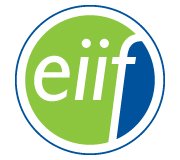The EU Directive on Energy Efficiency aims at reducing the EU's energy consumption by 20% by 2020. With current progress EU will achieve only half of these savings. Any Best Available Technique that can contribute to reduce EU's energy consumption is therefore needed more than ever.
Industrial insulation is such a Best Available Technique. It can help European industry to reduce its total fuel consumption by 620 PJ and emissions by 49 Million tonnes of CO2. The report analyses that the saving potential exists across all regions, sectors, equipment and operating temperatures.
This total annual energy savings potential of 620 PJ is equivalent to the energy consumption of 10 million households;
The annual CO2 reductions potential of 49 Mt is equivalent to the CO2 emissions of 18 million cars.
But why is the potential of industrial insulation in European industry so large?
According to the study 10% or more of all equipment in industrial plants is not insulated or is covered with damaged insulation. Furthermore, the level of insulation applied is typically based on a minimum investment decision. These decisions have been based on requirements regarding the maximum surface temperature. This to avoid personal injuries, minimum process needs or based on generic maximum heat loss rates. Requirements like cost-effectiveness or maximum energy efficiency of the insulation system are often just not considered.
"In the past, when fuel prices were lower, energy efficient insulation would not have led to a large difference", explains EiiF Foundation Director Andreas Gürtler. "But nowadays, besides the need to achieve the EU 20-20-20 goals, the price of energy is higher and is expected to grow even further. As a result we found an increasing gap between current and cost-effective insulation levels."
If industry takes the opportunity and starts to tap the insulation potential this trend could be stopped. The first step would be to consequently insulate all not insulated parts and to repair damaged insulation. If however industry continues to ignore the large savings potential of industrial insulation, the gap between "current" and cost-effective insulation will further increase. Additional costs for CO2 emission allowances will even accelerate this trend.
Note to the editors
European Industrial Insulation Foundation (EiiF)
The European non-profit foundation EiiF is registered in Switzerland and has been set up to promote and establish the use of industrial insulation as a widely understood and accepted means of achieving sustainability.
Since its foundation EiiF has established itself as a resource for industries that need to reduce CO2 emissions and save energy (www.eiif.org).
Ecofys - Experts in Energy
Established in 1984 with the vision of achieving "sustainable energy for everyone", Ecofys has become the leading expert in renewable energy, energy & carbon efficiency, energy systems & markets as well as energy & climate policies. The unique synergy between those areas of expertise is the key to its success. Ecofys creates smart, effective, practical and sustainable solutions for and with public and corporate clients all over the world. With offices in the Netherlands, Germany, the United Kingdom, China and the US, Ecofys employs over 250 experts dedicated to solving energy and climate challenges. (www.ecofys.com)


